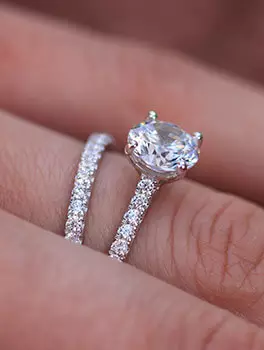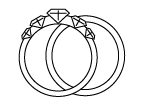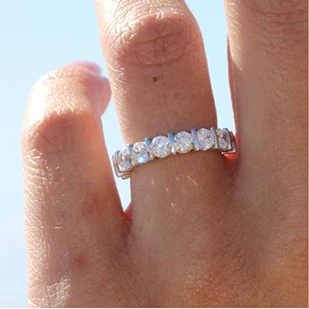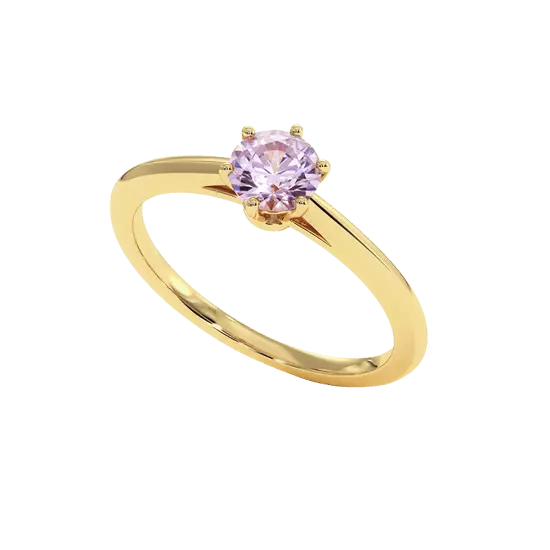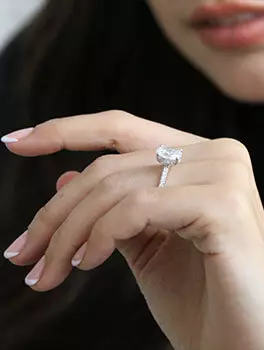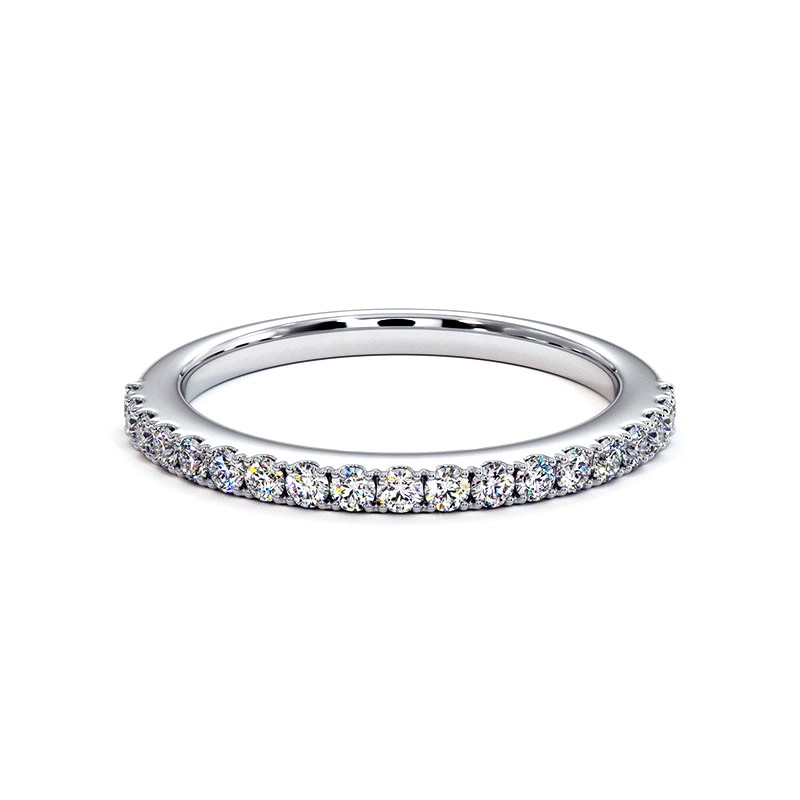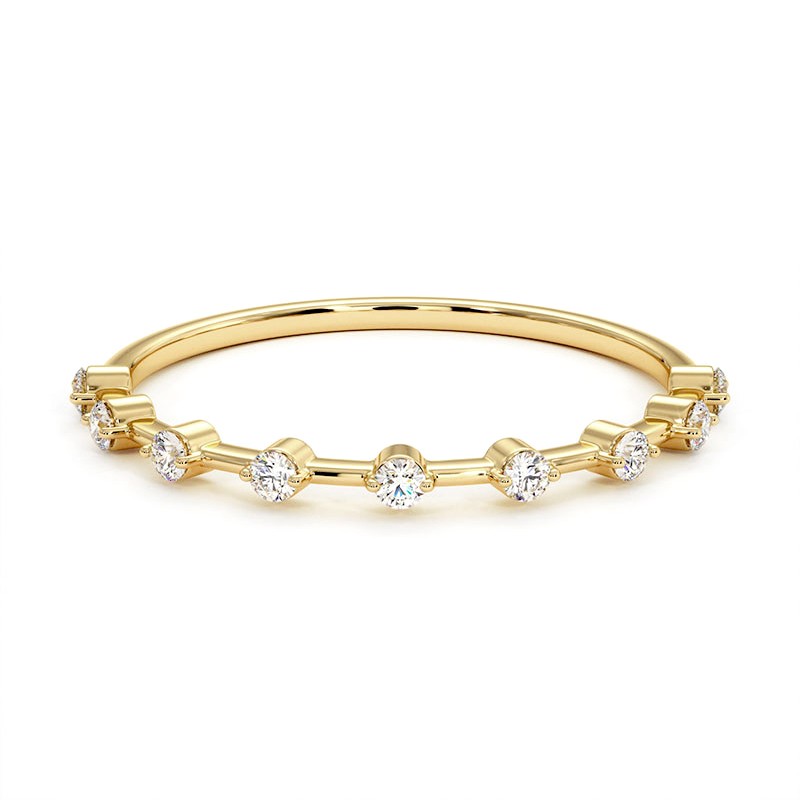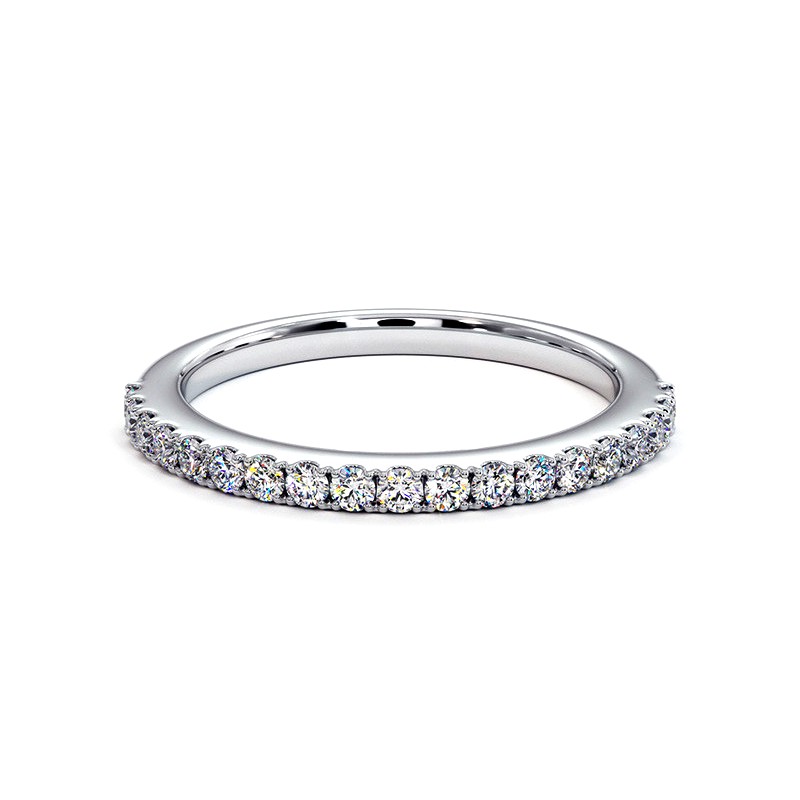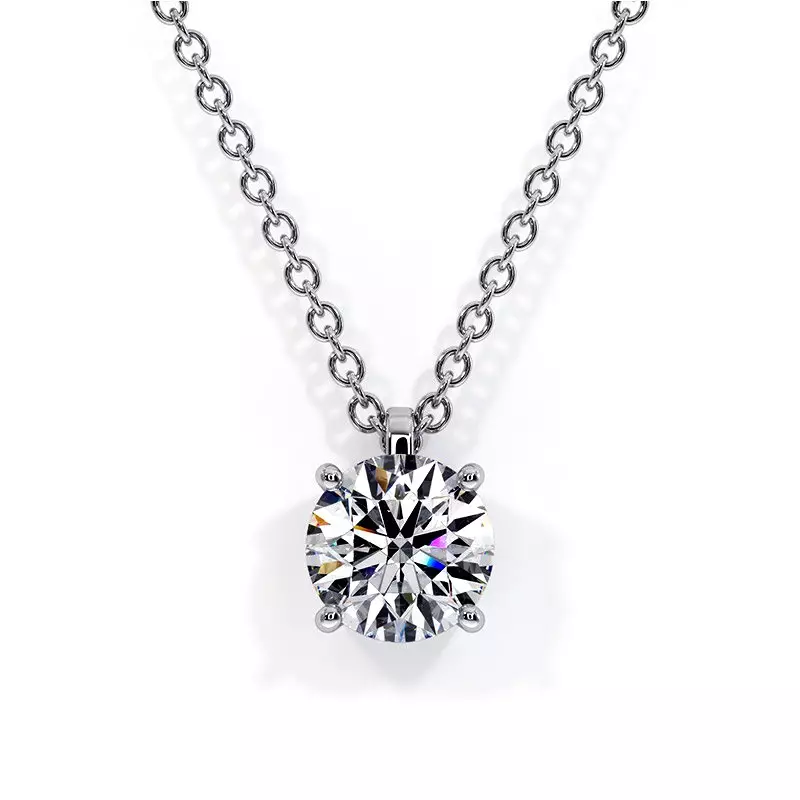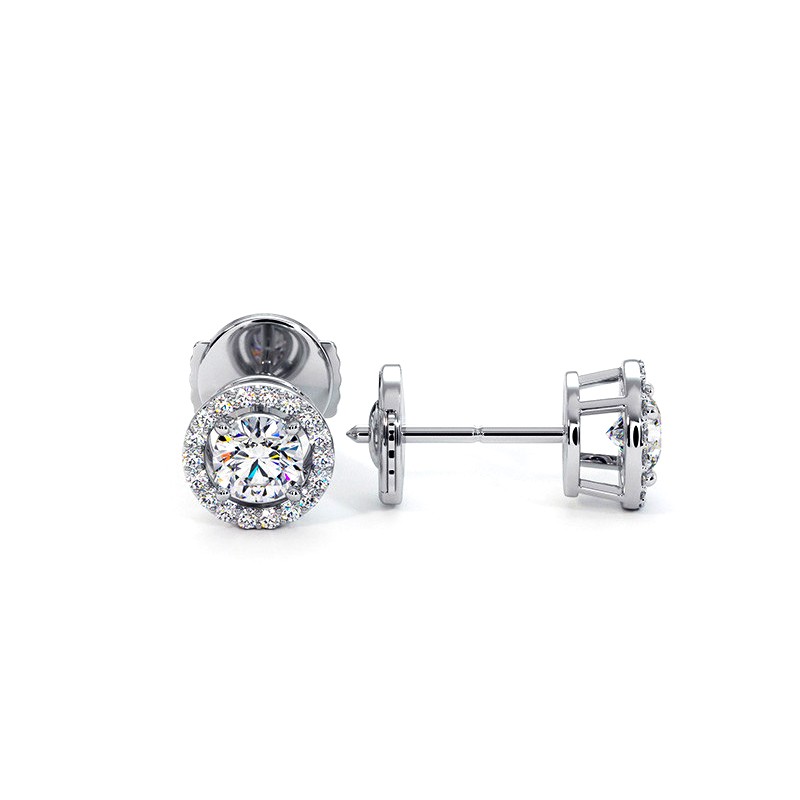How to organize a Jewish wedding?
 ,
Jewelry News
,
Jewelry News

Organize a marriage Jewish, is much more than just planning a ceremony: it's celebrating the union of two souls under the gaze of tradition, faith, and family. Rich in symbols and ancient rites, the Jewish wedding represents a sacred moment, structured around codified gestures and deeply spiritual. From the signing of the Ketubah to the passage under the Canopy, each step reflects the Jewish wedding tradition and the desire to build a home filled with blessings.
Be yourself Jewish spouse, that you are preparing your religious marriage with a rabbi, or if you simply want to understand the codes of a Jewish ceremony, this guide accompanies you step by step in the organization of this unique moment.
Here you will discover the different traditions of the Jewish wedding, the key steps of the ceremony, practical advice for the choice of the Jewish wedding day, the rules related to rings and the attire of the bride and groom, not to mention answers to frequently asked questions such as: "how much to give at a Jewish wedding?" or "When to organize a Jewish wedding?".
Understanding the symbolism of Jewish marriage
The sacred union in Jewish tradition
In Jewish tradition, marriage is far more than just a civil contract—it is a profound spiritual commitment governed by Jewish law (Halakha). This sacred union is known as Kiddushin, meaning the sanctification of the bond, which transforms the relationship between spouses into a divine act. The ultimate goal of marriage in Judaism is to create a Jewish home, a bayit ne’eman b’Yisrael—a place of peace, love, and transmission of values.
The Notion of Soulmates and the Shidduch
Even before the wedding ceremony, the shidduch plays a central role in traditional Jewish marriages. It refers to a matchmaking process facilitated by families or a matchmaker (the shadchan), especially in Orthodox communities. This tradition is rooted in the concept of basar echad (“one flesh”), the belief that every person has a predestined soulmate.
The Jewish Wedding Under the Chuppah: A Powerful Symbol
The most iconic moment of a Jewish wedding is undoubtedly the couple standing beneath the chuppah, a wedding canopy symbolizing their future home. The chuppah recalls the tent of Abraham, known for its openness to guests and blessings. Under the watchful eyes of witnesses and the rabbi, the bride and groom unite in a deeply spiritual moment. On the wedding day, the chuppah takes center stage, often adorned with white or embroidered fabric, reflecting a spirit of purity.
The role of the rabbi in the Jewish wedding
The wedding rabbi is more than just an officiant—he ensures that every aspect of the ceremony aligns with the laws of the Torah. From verifying the couple’s religious status, to drafting and reading the Ketubah (Jewish marriage contract), and reciting the Sheva Brachot (Seven Blessings) under the chuppah, the rabbi upholds a strict spiritual and legal framework. He also advises the couple on sensitive issues, such as interfaith marriage—like marrying a goy (non-Jewish woman)—a topic addressed differently across Jewish denominations.
The key stages of a Jewish wedding
The Shidduch: When Souls Meet
In Jewish wedding tradition, everything often begins with the shidduch—an arranged or facilitated meeting between two Jewish singles who share compatible values. While still very common in Orthodox communities, this practice also exists in more modern forms within contemporary Jewish weddings, where family and friends often act as intermediaries.
The signing of the Ketubah
A fundamental step in any traditional Jewish wedding, the Ketubah is the religious marriage contract, written in Aramaic or Hebrew. It formalizes the husband's commitments to his wife—love, respect, sustenance, and security. The document is typically signed just before the religious ceremony, in the presence of two witnesses.
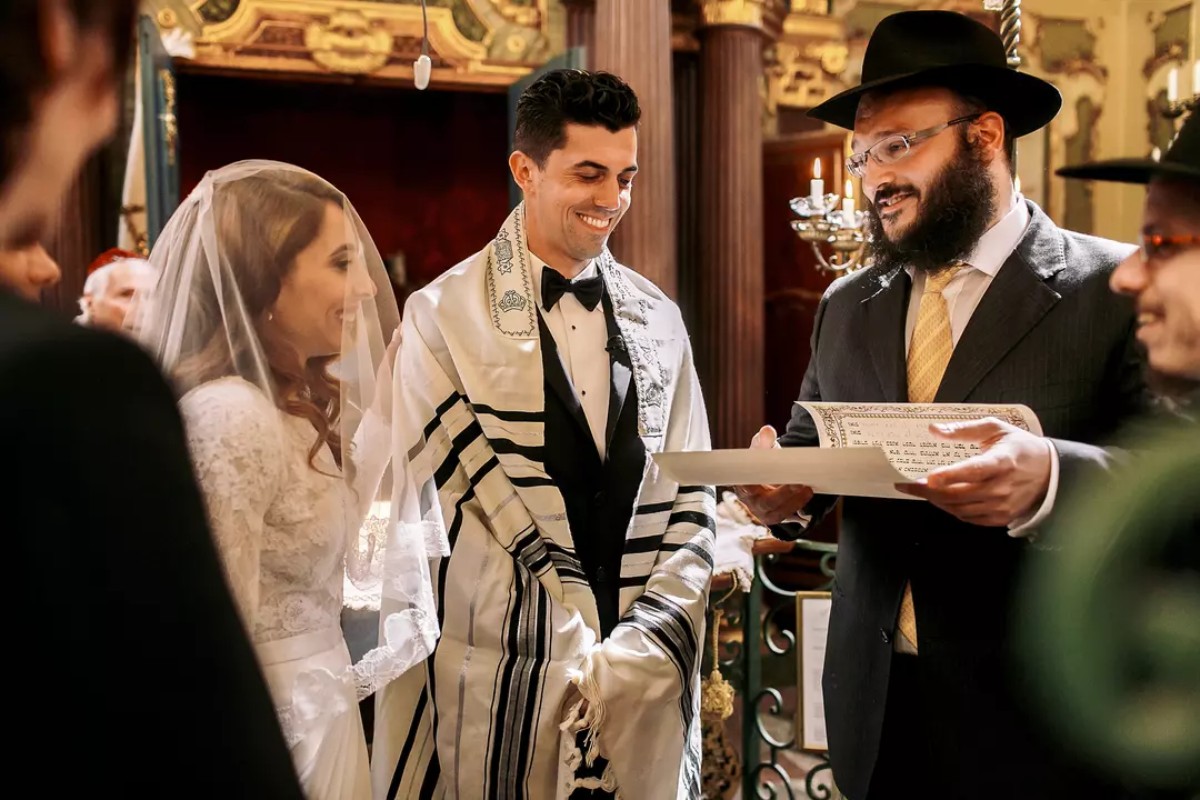
The Chuppah: the heart of the ceremony
The religious ceremony takes place under the canopy, a bridal dais open to the four winds, symbolizing the openness and hospitality of the new home. The groom usually enters first, then welcomes the Jewish bride, often accompanied by her parents. The couple stands under the Jewish chuppah, while the rabbi recites the blessings and reads the Ketubah. This sacred moment is the climax of the Jewish wedding.
Note: The Jewish wedding day varies among communities. It is often celebrated on a Sunday In France, for practical reasons, but some couples choose a Thursday (day of blessing in the Torah) or avoid certain periods like the Omer or fasting days. (Common query: "what day is a Jewish wedding?")
The Sheva Brachot: the seven blessings
The seven blessings or Seven Blessings are recited under the huppah by the rabbi or honored guests. They praise God, celebrate the union, and recall the creation of the human couple in Genesis. These blessings can also be repeated during festive meals in the following days.
The breaking of the glass: a symbolic gesture
"The groom ends the ceremony by breaking a glass with his right foot. This gesture, although festive, recalls the destruction of the Temple of Jerusalem and the trials of the Jewish people. Then you can hear the guests shouting." "Congratulations!", a joyful way to end the ceremony.
Which jewelry to choose for a Jewish wedding ?
A wedding ring in accordance with Jewish tradition
In many Jewish wedding traditions, especially in Orthodox communities, the wedding ring must be simple, in pure gold (often yellow), without stone and in one piece, to symbolize unity and sincerity. This type of Jewish wedding ring is generally used only during the religious ceremony under the chuppah.
At Celinni, we offer 18K gold simple rings, perfectly in line with these traditions. Made in France, they combine purity and elegance.
And after the huppah? Modernity and personalization
After the religious ceremony, many couples opt for a second ring, often more modern: ring set with diamonds, alliance in white gold or rose gold, sometimes engraved. This is where creativity comes into play: recycled gold ring, pave setting, personalized engraving...
For those who want to combine respect for traditions and a taste for refinement, our custom wedding ring collections allow to create the perfect ring for your Jewish wedding.
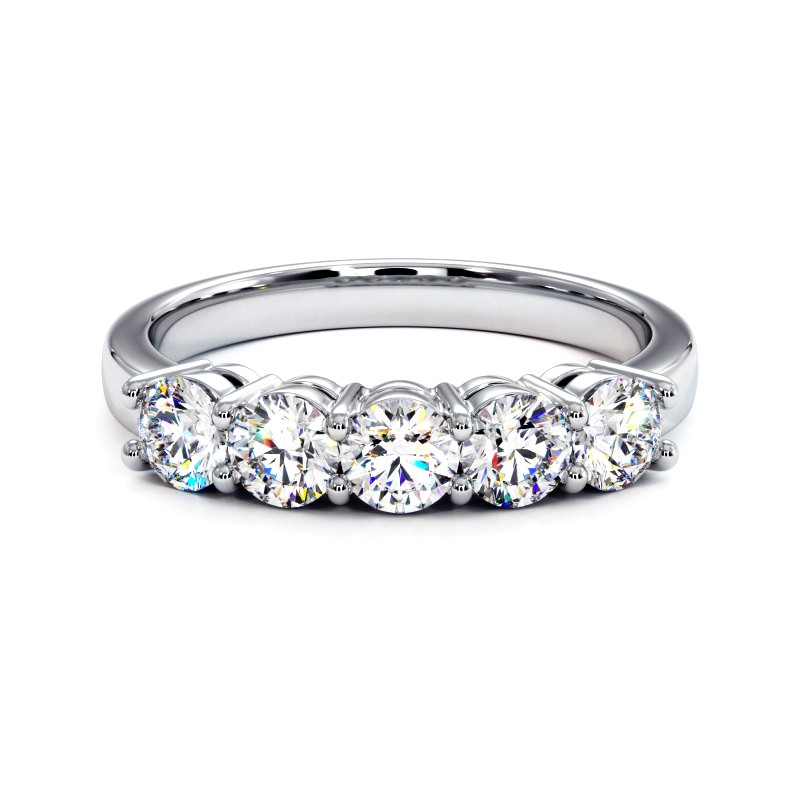

Half Alliance 5 Round Diamonds Promesse
- -15%
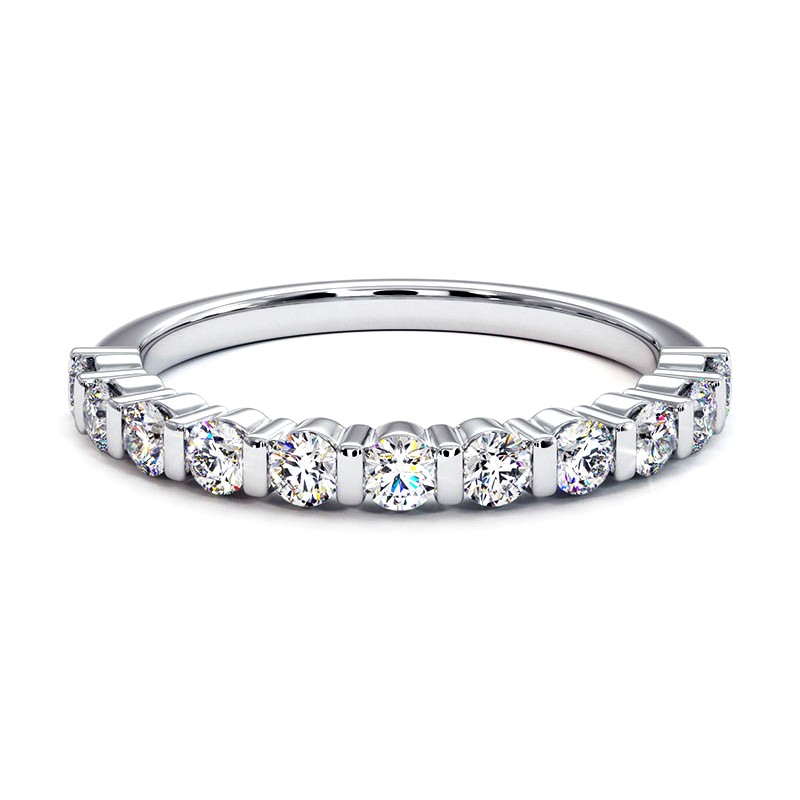

Half Alliance Round Diamonds Queen Barrettes
- -15%

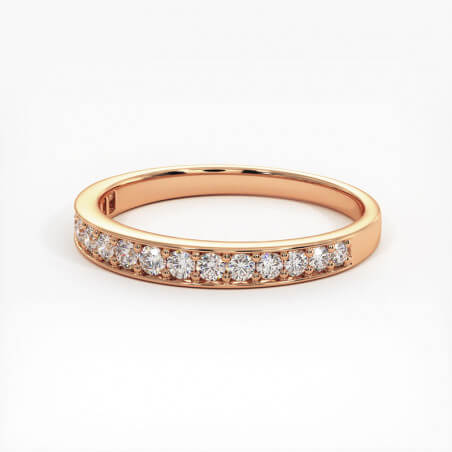
Half Alliance Mon amour Classic
- -15%
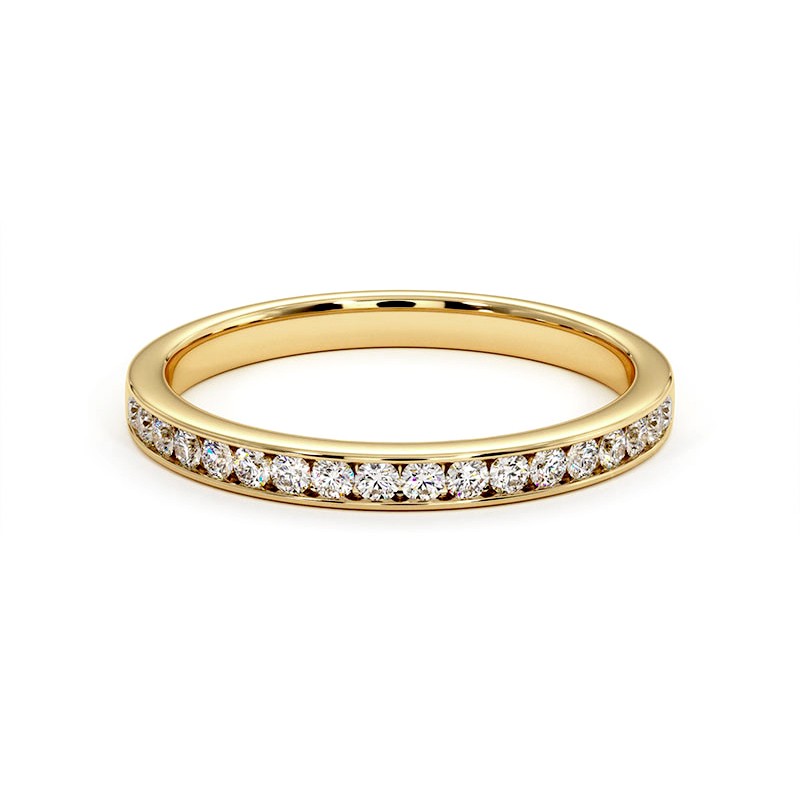

Half Diamond Alliance Mon trésor Classic
- -15%
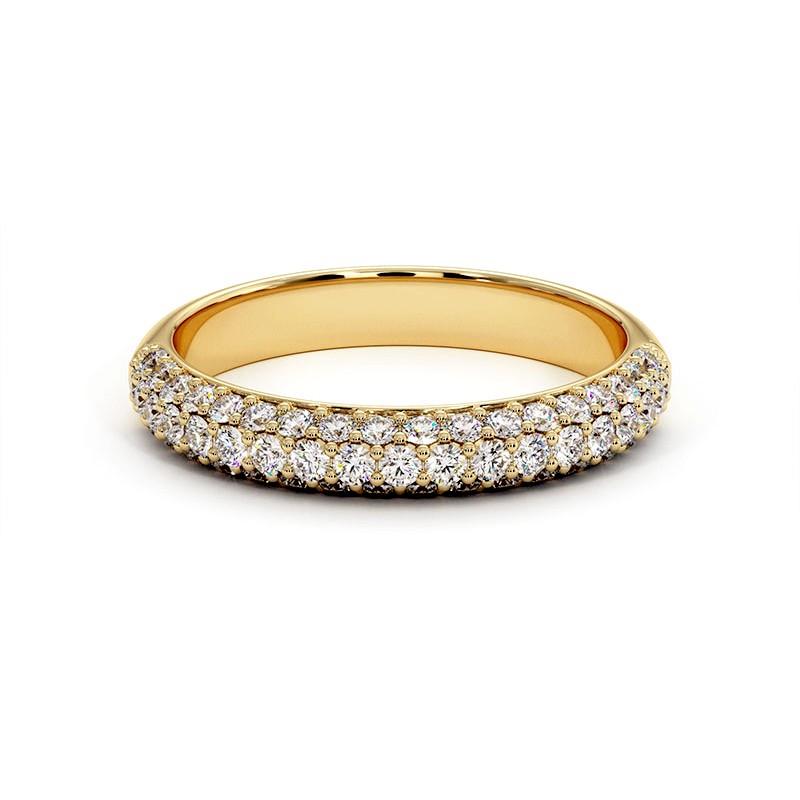

Half Alliance Diamonds Pamina
- -15%
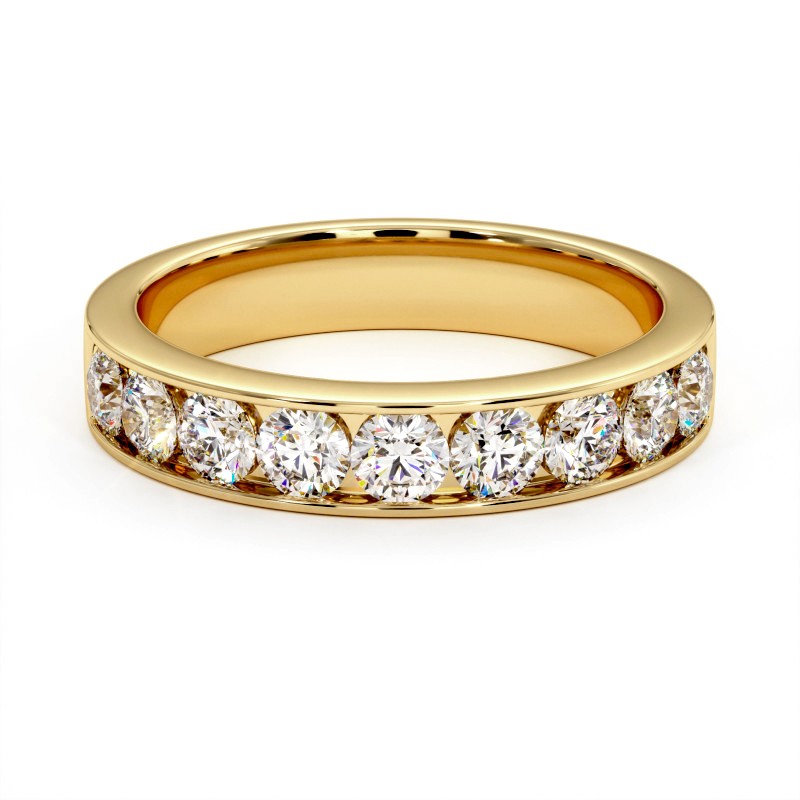

Half Round Diamonds Rail Mon trésor
- -15%
Offer a symbolic piece of jewelry to the Jewish bride
Beyond the wedding ring, it is common to offer a piece of jewelry to the Jewish bride You didn't provide any text to translate. Please provide the text you want translated from French to English. necklace, , bracelet or earrings, often inherited or given by parents or in-laws. These items may include diamonds, of the precious stones (as the emerald or the sapphire), or religious symbols.
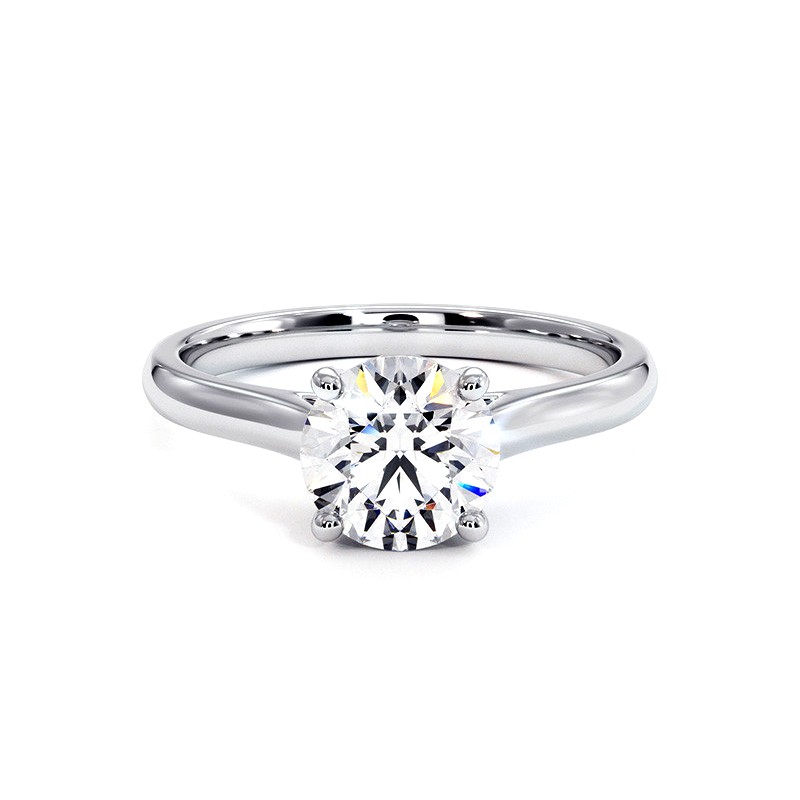

Round Diamond Engagement Ring Promesse
- -15%
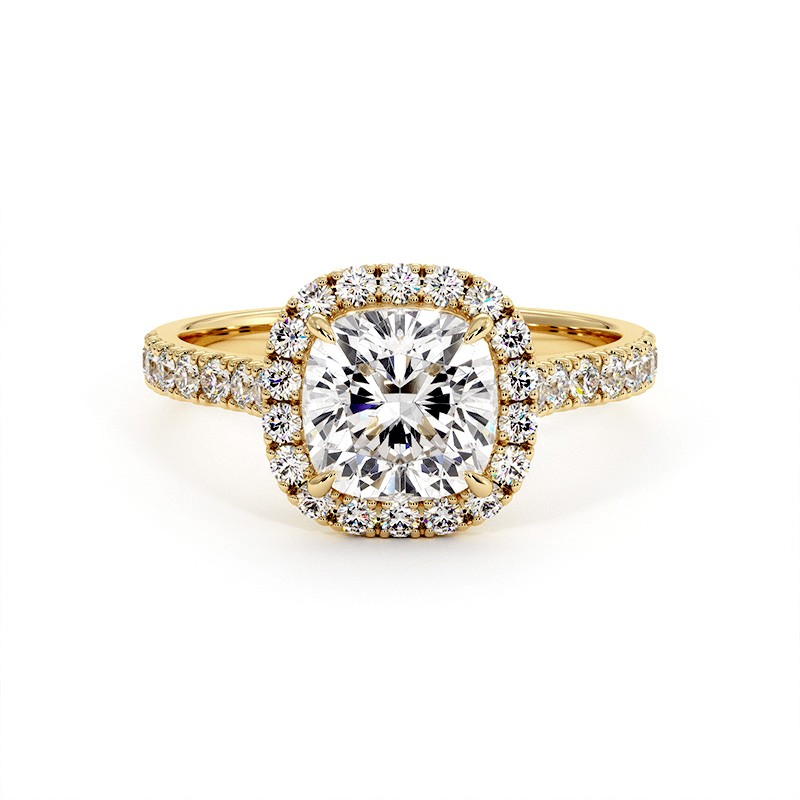

Cushion Diamond Solitaire Ma vie
- -15%
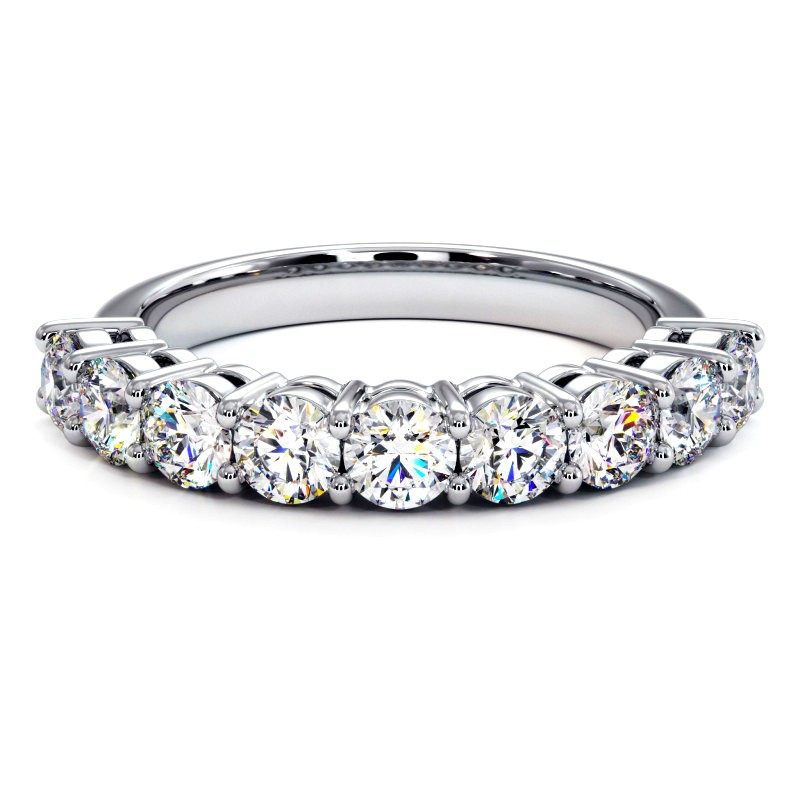

Half Alliance Round Classic Diamonds Promesse
- -15%
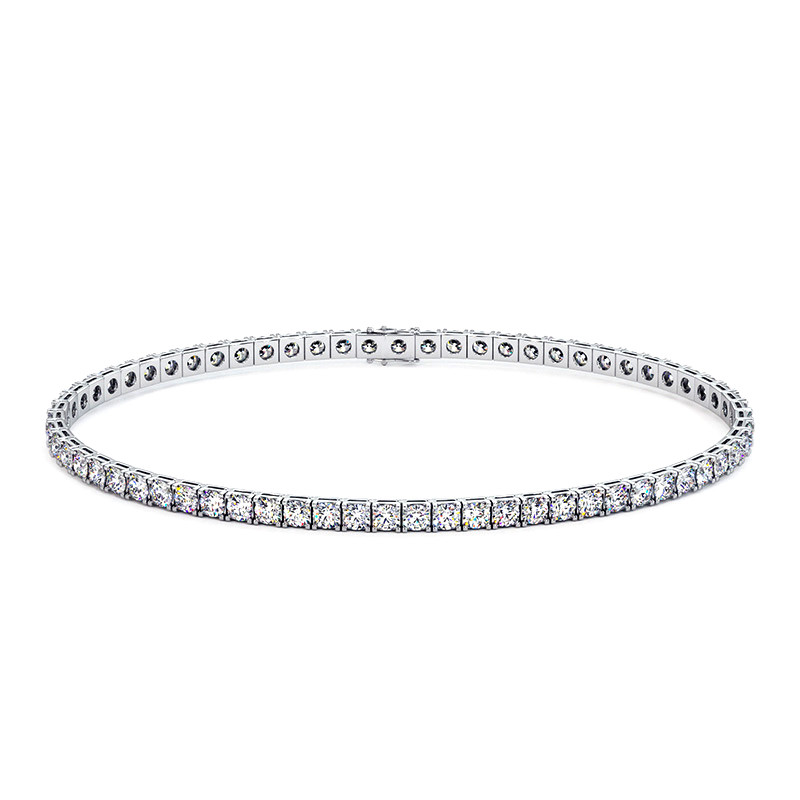

Traditional Round Diamond River Bracelet
- -15%
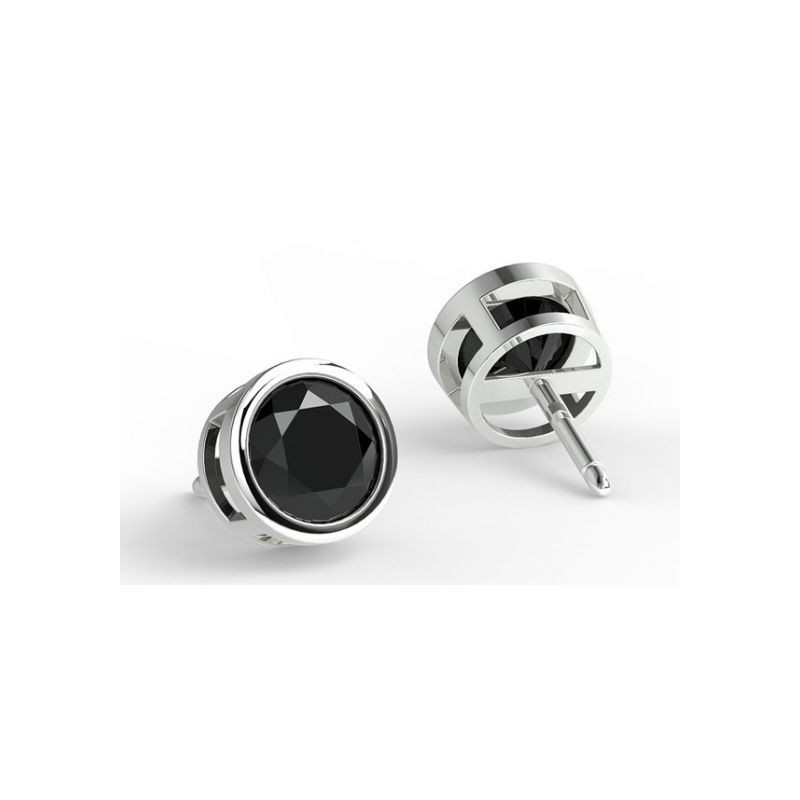

Black Diamond Stud Earrings
- -15%
Jewelry for family and loved ones
In some Sephardic or Maghreb cultures, jewelry is also given to loved ones on the evening of the Jewish wedding henna, a traditional celebration full of music and rituals. It's an opportunity to honor the mother, sister, or witnesses with a refined piece of jewelry.
Prepare the ceremony with respect and emotion
Choose a rabbi and plan the religious ceremony
The presence of a rabbi for the wedding is essential to officiate the Jewish ceremony. It is recommended to make contact several months in advance, especially if the wedding is taking place outside of a synagogue. The rabbi guides the spouses in spiritual preparation, explains the steps of the ceremony, and validates the religious documents (Ketubah, religious status of the future spouses, etc.).
Some communities choose a wedding in a synagogue, while others prefer an outdoor ceremony or in a reception hall, under a Jewish wedding canopy installed for the occasion.
To organize the ceremony on the ideal date, it is necessary to take into account the Jewish wedding day. Traditionally, fasting days, religious holidays, and the Omer period are avoided. The Sunday wedding is common in diaspora for practical reasons, but some couples opt for the Thursday, day considered favorable in the Torah.
Take care of the symbolic details
Every detail matters in a traditional Jewish wedding ceremony: the blessings, the reading of the Ketubah, the selection of witnesses, the number of wine glasses, and adherence to protocol. Special attention is given to the chuppah, whose design can be personalized. Embroidered fabric, floral arrangements, or a minimalist structure—it becomes the central setting of the Jewish wedding.
The place of families and traditions
The ceremony is often an opportunity to unite two families. In Sephardic weddings, great importance is given to musical accompaniment and dancing from the entrance of the Jewish bride Under the huppah. Among the Ashkenazim, the blessings are more subdued, but imbued with spirituality.
The respect for Jewish wedding traditions involves the participation of parents, grandparents and sometimes even children (in the case of a remarriage).
The wedding meal (Séoudat Mitsva)
A sacred feast meal
After the religious ceremony, comes the time for the wedding meal, called Mitzvah Meal, literally "meal of commandment". This feast has a spiritual significance: it is not just a dinner, but a joyful religious act, where the union is celebrated with songs, laughter and blessings.
The dishes served vary according to the origins of the bride and groom: couscous and roast lamb for a Maghrebin Jewish wedding, gefilte fish and borscht for a Ashkenazi Jewish wedding. The meal is often kosher, and accompanied by wine for the blessings.
Traditional Jewish dances
The Jewish music is essential: klezmer, oriental music, Hebrew songs. The evening quickly comes alive with traditional dances like the Hour, where the newlyweds are carried on chairs in the middle of a circle.
Specific moments can be planned:
- Reading family speeches
- Animations for children
- Distribution of gifts or sugared almonds
Celebrating several days: the extended Cheva Bera'hot
In some practicing families, the Seven Blessings (seven blessings) are recited every evening. seven days around meals organized at various relatives' homes. A beautiful and convivial tradition that extends the celebration.
Practical tips for organizing a successful Jewish wedding
Anticipate religious and logistical constraints
A traditional Jewish wedding involves adhering to a certain number of religious rules. Therefore, it is important to:
- Check the authorized date in the Hebrew calendar
- Choose a competent and available rabbi
- Prepare religious documents on time (proofs of Judaism, religious status, etc.)
- Reserve a room that can accommodate a chuppah
Adapt the ceremony to your level of practice
Not all couples live their faith in the same way. Therefore, it is entirely possible to organize:
- A traditional orthodox Jewish wedding, with separation of sexes and strictly kosher meals
- A modern Jewish wedding, more flexible on certain rules, while maintaining the spirit of tradition
- A mixed marriage (under certain conditions), with or without a rabbi, sometimes with a separate civil ceremony
In all cases, it is essential to respect the sensitivities of families and to establish a benevolent dialogue.
Working with well-informed service providers
Photographer, caterer, decorator, DJ... all must be briefed on the specific rules for Jewish weddings. For example:
- Do not interrupt the blessings during the chuppah
- Plan for a kosher wine for the rituals
- Respect the Sabbath hours if the wedding falls on a Saturday evening.
FAQ - Everything you need to know about Jewish weddings
- Which day to choose for organizing a Jewish wedding ?
The Jewish wedding is often celebrated a Sunday in diaspora for practical reasons. However, some traditions recommend the Thursday, blessed day in the Torah. It is important to avoid forbidden periods like the fasting days, the religious holidays or the Omer. The Jewish wedding day must be validated with the rabbi. - Can you wear a ring with a diamond at a Jewish wedding ?
In the traditional Jewish weddings, especially for Orthodox, the ring used during the ceremony must be in plain gold, without stone, symbolizing unity and sincerity. After the houppa, it is common to offer a second ring, often diamond-set, as a supplement or for everyday use. - How much to give at a Jewish wedding as a guest ?
The amount of the gift depends on the relationship with the couple, the city, and the type of reception. Generally, guests offer between 100 € and 300 €, often in the form of an envelope. It is also common to add a congratulatory message and sometimes a small symbolic object. - Can a rabbi marry a mixed couple ?
This depends on the religious denomination. In Orthodox Judaism, a A rabbi does not officiate a wedding with a non-Jewish person. (Marrying a non-Jewish woman is not religiously recognized). However, some liberal or reform rabbis may accompany this type of couple in a symbolic or spiritual ceremony. - What is the chuppah in a Jewish wedding ?
The chuppah is a wedding canopy under which the bride and groom stand during the religious ceremony. It symbolizes the couple’s future home—open and welcoming—and serves as the central symbol of the Jewish wedding. It is often adorned with white fabrics, flowers, or personalized elements.























